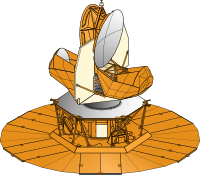Associations to the word «Probe»
Noun
- Microscopy
- Scanning
- Spectroscopy
- Fluorescence
- Blot
- Excitation
- Raman
- Scattering
- Microscope
- Diffraction
- Rna
- Sensor
- Wafer
- Imaging
- Wavelength
- Spectrometer
- Sequencing
- Dna
- Assay
- Detection
- Antibody
- Interviewer
- Photon
- Resonance
- Molecule
- Electron
- Scam
- Beam
- Pulse
- Sensing
- Laser
- Absorption
- Electrode
- Measurement
- Ionization
- Adsorption
- Spectrometry
- Scanner
- Polarization
- Neutron
- Detecting
- Tip
- Sample
- Instrumentation
- Gel
- Detector
- Sensitivity
- Ligand
- Dynamic
- Array
- Surface
- Warp
- Characterization
- Semiconductor
- Specific
- Mapping
- Investigator
- Substrate
- Technique
- Solid
- Planck
- Atom
- Penetration
- Membrane
- Interaction
- Modulation
- Reagent
- Radiation
- Proton
- Voyager
Adjective
Adverb
Pictures for the word «Probe»
Wiktionary
PROBE, noun. (surgery) Any of various medical instruments used to explore wounds, organs, etc. [from 15th c.]
PROBE, noun. (figuratively) Something which penetrates something else, as though to explore; something which obtains information. [from 17th c.]
PROBE, noun. An act of probing; a prod, a poke. [from 19th c.]
PROBE, noun. (figuratively) An investigation or inquiry. [from 20th c.]
PROBE, noun. (aeronautics) A tube attached to an aircraft which can be fitted into the drogue from a tanker aircraft to allow for aerial refuelling. [from 20th c.]
PROBE, noun. (sciences) A small device, especially an electrode, used to explore, investigate or measure something by penetrating or being placed in it. [from 20th c.]
PROBE, noun. (astronautics) A small, usually unmanned, spacecraft used to acquire information or measurements about its surroundings. [from 20th c.]
PROBE, noun. (game of go) a move with multiple answers seeking to make the opponent choose and commit to a strategy
PROBE, noun. (biochemistry) Any group of atoms or molecules radioactively labeled in order to study a given molecule or other structure
PROBE, verb. (transitive) (intransitive) To explore, investigate, or question
PROBE, verb. (transitive) To insert a probe into.
PROBE, proper noun. A model of Ford automobile
Dictionary definition
PROBE, noun. An inquiry into unfamiliar or questionable activities; "there was a congressional probe into the scandal".
PROBE, noun. A flexible slender surgical instrument with a blunt end that is used to explore wounds or body cavities.
PROBE, noun. An exploratory action or expedition.
PROBE, noun. An investigation conducted using a flexible surgical instrument to explore an injury or a body cavity.
PROBE, verb. Question or examine thoroughly and closely.
PROBE, verb. Examine physically with or as if with a probe; "probe an anthill".
Wise words
When ideas fail, words come in very handy.

